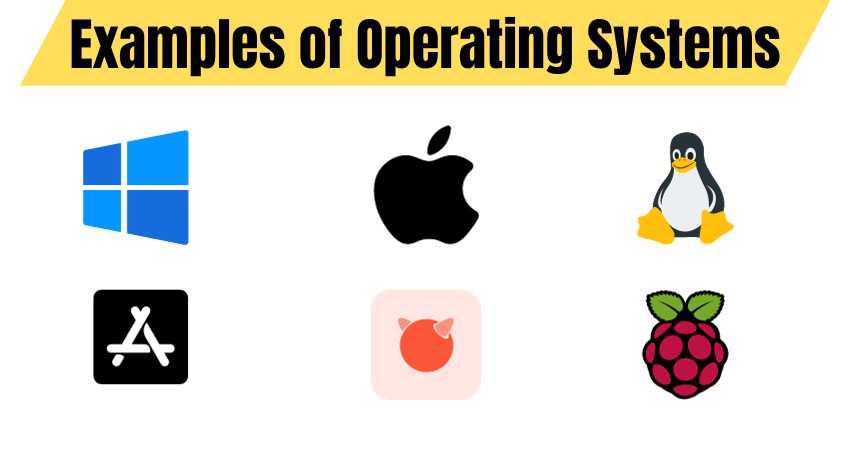Introduction of Operating Software:
Operating systems are the backbone of every computing device, from desktops to laptops, tablets, and smartphones. They manage the hardware, software, and user interaction, making sure everything runs smoothly. Without operating systems, our digital lives would be chaotic and unmanageable. That’s why it’s important to appreciate the unsung heroes of the tech world and learn more about their fascinating features. In the following paragraphs, we’ll explore the world of operating systems and discover some of their unique characteristics.
What is an operating system?
Think of it as the CEO of your computer. It manages all the hardware and software resources, making sure everyone is working together in perfect harmony. Without it, your computer would be as useful as a chocolate teapot – entertaining, but not very practical.
Why Are Operating Systems Important?
Imagine you’re in a car without a driver – things might get chaotic fast. Operating systems provide stability and control. They help your computer play nice with its components and run your favorite apps without crashing like a clumsy acrobat.
Different Types of Operating Systems
Operating systems come in various flavors, like ice cream at an all-you-can-eat buffet. Here’s the scoop on the four main types:
10 Examples of Operating Systems:
Desktop Operating Systems:
- Microsoft Windows:
- It’s the Bill Gates of the operating system world, widely used and recognizable. Windows is like that old, reliable friend who might have a few quirks but is always there when you need them.
- Apple macOS:
- If Windows is the dependable buddy, macOS is the cool, artsy friend who’s all about elegance and creativity. It’s like sipping tea in a high-end art gallery – smooth, sophisticated, and sometimes pricey.
- Linux:
- Linux is the rebel of the bunch, open-source and free-spirited. It’s like the punk rock concert where you can tweak everything to your liking, as long as you’re not afraid to get your hands dirty.
Mobile Operating Systems:
- Android:
- Android is the life of the mobile party – versatile, customizable, and open to all. It’s like a smartphone buffet with countless options, flavors, and price points.
- iOS:
- iOS, on the other hand, is the exclusive club where the cool kids hang out. It’s like the VIP section with strict rules but a promise of sleek design and premium service.
- Windows Mobile:
- Windows Mobile, well, used to be the underdog trying to join the party. It had some good moves, but it’s currently more of a nostalgia act.
Server Operating Systems:
- Windows Server:
- Windows Server is like the corporate office manager – dependable and great for businesses. It offers robust security and support, but it’s also known for having some corporate quirks.
- Linux Server:
- Linux Server is the workhorse – no frills, just pure performance. It’s like the mechanic who can keep your servers running smoothly, but don’t expect a fancy uniform.
- macOS Server:
- macOS Server is the stylish coworker who still uses a Mac at the office. It’s not as common in server roles but brings a touch of Apple’s user-friendliness to the workplace.
- FreeBSD:
- FreeBSD is like the quiet genius in the server room, not seeking the spotlight but delivering stellar performance. It’s open-source, reliable, and preferred by some serious tech aficionados.
Embedded Operating Systems:
- Android Things:
- Android Things is like a toddler-friendly toy store. It’s designed for IoT devices, making them easy to use and develop, but not exactly your go-to for a heavy-duty task.
- Linux Mint:
- Linux Mint is the cozy cottage in the tech forest, providing a user-friendly experience with a dash of whimsy. It’s Linux, but with a user interface that says, “Come on in, make yourself at home.”
- Raspberry Pi OS:
- Raspberry Pi OS is the DIYer’s dream, like a box of Lego blocks. It’s a customized OS for the Raspberry Pi, perfect for hobbyists, educators, and anyone who loves a good tech experiment.
So there you have it – 10 quirky examples of operating systems that make our digital world go round. They each have their unique personality and purpose, just like the eclectic characters at a dinner party.
As for the future of operating systems, who knows? Maybe one day, our devices will be so smart that we won’t even notice them. Until then, let’s celebrate the diversity and charm of these essential tech companions. Cheers to the unsung heroes of the digital age!

